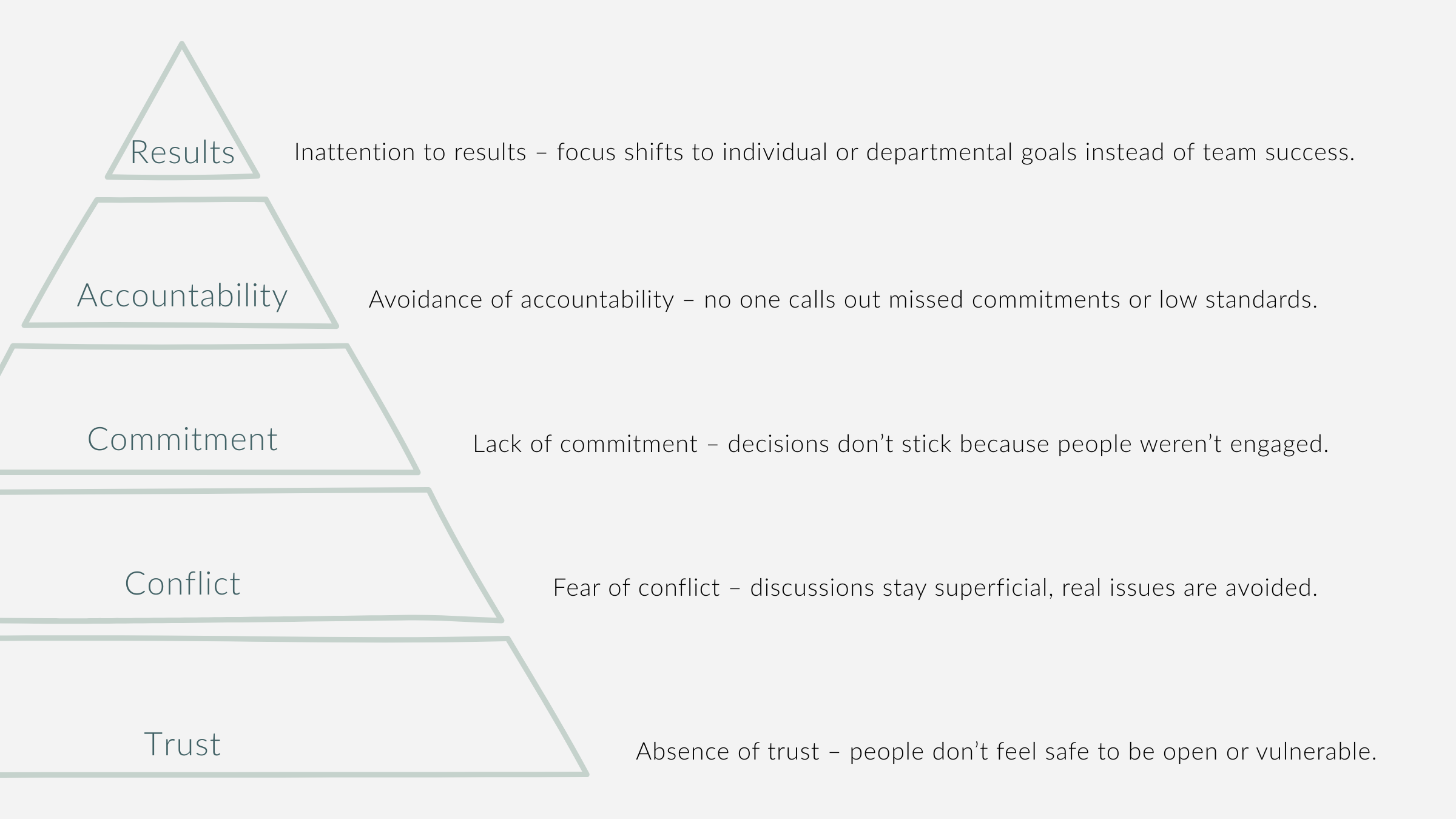The five dysfunctions of a team: what they mean for your business
When a team doesn’t work well together, it doesn’t just feel uncomfortable – it slows everything down. Decisions take longer, energy drops, and the best ideas never make it to the surface. Patrick Lencioni’s model of the five dysfunctions of a team gives us a simple way to see where things go wrong and, more importantly, where to start improving.
1 - Absence of trust
Without trust, people hold back. They don’t admit mistakes or ask for help because they fear it will make them look weak. But real trust is the foundation of strong teamwork. It’s built when leaders show vulnerability first and make it safe for others to follow.
Try this small step: share something you don’t have the answer to and invite your team’s input.
2 - Fear of conflict
When trust is missing, open discussions turn into avoidance. People stay silent in meetings but share frustrations in the hallway. Healthy conflict isn’t about fighting, it’s about debating ideas with respect.
Try this small step: ask a quiet team member for their view in the next discussion and thank them for sharing.
3 - Lack of commitment
If no one speaks up, decisions feel forced. People nod along but don’t truly commit. The result? Half-hearted execution and “we’ll see” attitudes. Commitment grows when everyone feels their voice was heard - even if the final decision isn’t their preferred one.
Try this small step: summarise a decision at the end of a meeting and check if everyone is on board.
4 - Avoidance of accountability
When commitment is weak, accountability slips. It feels uncomfortable to challenge a colleague, so people let things slide. But without accountability, standards fall - and frustration rises.
Try this small step: agree as a team on one clear expectation for the week and follow up together.
5 - Inattention to results
The final dysfunction shows up when individual goals come before team goals. Success becomes about “my project” or “my department” instead of the bigger picture. High-performing teams keep results in focus and celebrate them together.
Try this small step: highlight one recent team success in your next meeting - no matter how small.
Bringing it all together
Use these dysfunctions as a map. They show us where to look when teamwork feels heavy. The good news is that every step towards trust, open dialogue, and shared accountability builds momentum.
As I support Swiss SMEs in digital transformation, I often see how technical projects struggle because the team side was left behind. Tools and systems matter, yes - but they only work when people work together.
Change always starts with people. And the first step towards stronger teams is as simple as creating a space where trust can grow.

